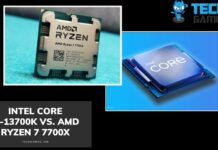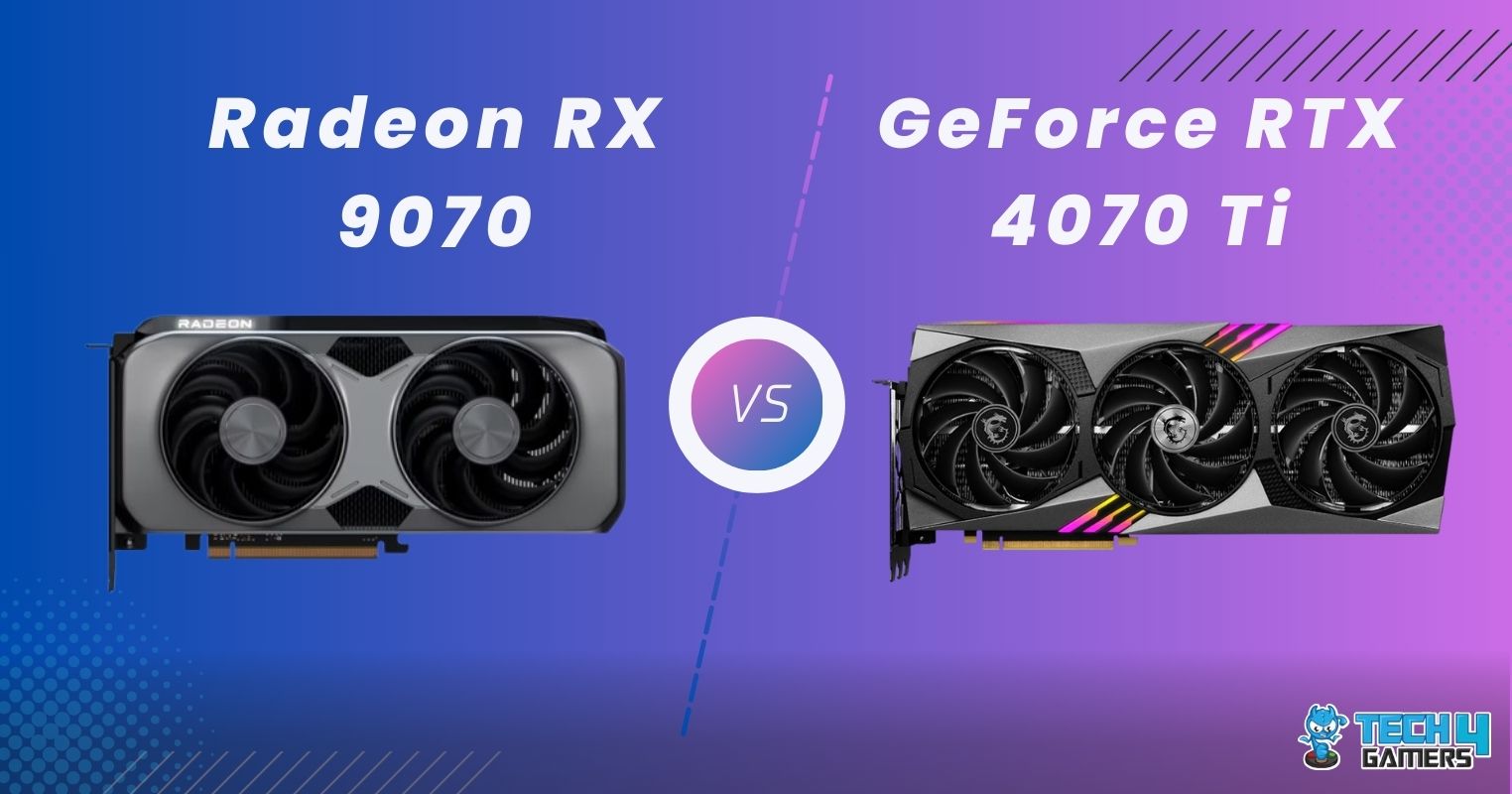Intel Core i5 14600K
Rated: 6/10
Intel Core i5 13600KF
Rated: 8/10
Pros & Cons
| CPU | Pros | Cons |
|---|---|---|
| Core i5 13600KF | ✅Almost equivalent performance ✅Lower cost | ❌Slightly lower performance ❌Worse power efficiency |
| Core i5 14600K | ✅Low platform cost ✅Slightly better performance | ❌Very old manufacuring process ❌Almost no improvements over last year's model |
Key Takeaways
- There was a minuscule 0.9% difference in the average framerate of these processors in our gaming tests at 1080p, which is an indistinguishable difference.
- The power consumption was around 1.6% lower on the newer Intel chip, making it slightly more power-efficient than the Core i5 13600KF.
- As of late December 2023, the price of the Core i5 13600KF is 23% lower than the current price of the Core i5 14600K.
- We would strongly recommend getting the Core i5 13600KF between these two processors due to its lower price and almost equivalent gaming performance.
Specification Table
| Feature | Intel Core i7-14700K | Intel Core i5-13600KF |
|---|---|---|
| Processor Base Power | 125 W | 125 W |
| Memory Types | Up to DDR5 5600 MT/s Up to DDR4 3200 MT/s | Up to DDR5 5600 MT/s Up to DDR4 3200 MT/s |
| Max Memory Size | 192 GB | 192 GB |
| Max Memory Bandwidth | 89.6 GB/s | 89.6 GB/s |
| Max # of Memory Channels | 2 | 2 |
| Processor Graphics | Intel UHD Graphics 770 | - |
| Graphics Base Frequency | 300 MHz | - |
| Launch Date | Q4’23 | Q3’22 |
| Best RAM | Best RAM For i5-14600K | - |
| Best CPU Coolers | Best CPU Coolers For i5-14600K | - |
| Best Motherboards | The Best Motherboards For i5-14600K | Best Motherboards For i5-13600KF |
Architectural Differences
- Core Count: Both processors share the exact specifications in their core counts, that is 6 performance cores and 8 efficiency cores, totalling 14 cores and 20 threads.
- Clock Speed: The base clock of the performance cores of both processors is the same, at 3.5GHz, while the boost clocks differ. It is around 5.1GHz on the 13600KF, while the Core i5 14600K has a performance boost of 5.3GHz. The base clock on the efficiency cores is also the same, while the boost frequencies differ once again. The 13600KF hovers around 3.9GHz, while the 14600K hovers around 4GHz.
- Process Node: The processing nodes of both processors are the same 10nm TSMC nodes we have seen since the 12th generation of Intel processors.
- TDP: Both processors match each other in terms of their PL1 and PL2 TDPs, offering a rating from 125 watts to up to 181 watts.
- Graphics: Perhaps the biggest difference between these two processors is the omission of an iGPU on the 13600KF, which might be an insignificant change for some users.
This year’s Raptor Lake S Refresh chips have failed to capture the hearts of consumers, offering mild, often unnoticeable performance bumps from the Raptor Lake S counterparts. This comparison will look at the Core i5 14600K vs Core i5 13600KF to measure how little or how understated the difference in performance is.
Benchmarks – 1080p
To gauge the performance of the Core i5 14600K vs Core i5 13600KF, we tested them in modern games, swapping them in our tailor-made test bench, the specifications of which we have written below:
Test Bench
- OS – Windows 11
- Mobo – Gigabyte X670E Master/MSI MAG Z790 Tomohawk DDR5
- RAM – XPG Lancer RGB 32GB 7200MT/s DDR5
- SSD – XPG GAMMIX S70 BLADE 2TB NVMe
- PSU – ENERMAX REVOLUTION D.F. X 1050W
- CPU Cooler – Arctic Liquid Freezer II 420 – AIO Water Cooler
- GPU – Asus ROG Strix RTX 4090 OC Edition
Baldur’s Gate 3

- There was only one frame of difference between the two processors in Baldur’s Gate 3, with the 14600K reaching a framerate of 144 FPS on average, while the Core i5 13600KF reached about 143 FPS.
- For the 1% lows, the Core i5 14600K hovered around 126 FPS, once again only a frame higher than the 125 FPS lows of its predecessor.
Hogwarts Legacy

- The difference accumulated to an unceremonious one frame once again in Hogwarts Legacy, with the 14th-gen processor getting an average framerate of 70 FPS while the 13600KF averaged a framerate closer to 69 FPS.
- The minimums also shared the same difference, with the 14600K getting a minimum of 46 FPS while the 13600KF had 1% lows of 45 FPS.
Starfield

- Our cumulative delta doubled in Starfield, with two frames of difference between the two processors. The 14600K managed a framerate of 98 FPS, while the Core i5 13600KF had an average framerate of 96 FPS.
- The 1% lows in this game saw our first substantial difference of these tests, with the 14th-generation processor lowering down to 84 FPS, while the 13600KF had lows of around 80 FPS.
Cyberpunk 2077

- Cyberpunk continued our grand difference, with the delta around two frames. The average framerate of the 14th-generation processor rose to around 156 FPS, while the Core i5 13600KF managed an average framerate of 154 FPS.
- The 1% lows in this game showed the return of a single frame of difference between the two chips, with the 13600KF outputting 130 FPS on minimum, whereas the Core i5 14600K had an output of around 131 FPS.
The Last Of Us Part 1

- Intel had only two frames of improvement to show in this game as well, with the 14600K managing an average framerate of 173 FPS, while its predecessor had an average framerate of 171 FPS.
- As for the 1% lows, the older processor had minimums of 141 FPS, a few frames shy of the 146 FPS minimums supplied by the 14600K.
Star Wars Jedi Survivor

- The performance of these chips was virtually identical again in Star Wars Jedi Survivor, with the 13th-gen processor getting an average framerate of 151 FPS, while its 14th-gen counterpart had an average of 153 FPS, once again boasting a difference of two frames.
- The difference in performance extended itself to the 1% lows, with the 13600KF getting minimums of around 141 FPS while the i5 had minimums closer to 143 FPS.
Spider-Man Remastered

- Continuing the indistinguishable difference in performance between these two chips, the Core i5 13600KF had an average framerate of 136 FPS, while its newer rival improved by only one frame, providing an average framerate of 137 FPS.
- The difference in averages speaks to the difference between the minimums of these chips, with the 14600K getting lows of 120 FPS while the 13600KF had lows of 119 FPS.
A Plague Tale Requiem

- The similarity between these two chips turned into equality in our test of A Plague Tale Requiem, with both processors getting an average framerate of 147 FPS.
- The 1% showed some difference between the two, with the 13600KF getting minimums of around 133 FPS, while the 14600K had minimums of 135 FPS.
Hitman 3

- The average framerates finally showed some distinction in our test of Hitman 3, with the Core i5 13600KF getting an average framerate of 251 FPS, while the Core i5 14600K had an average framerate of around 256 FPS.
- The lows hovered around 227 FPS on the Core i5 14600K, four frames higher than the 223 FPS minimum of the Core i5 13600KF.
Assassin’s Creed Mirage

- Reaching the final games of our testing, the framerate of these processors was not budging above their usual delta. In AC Mirage, the 14600K had an average framerate of 163 FPS, one frame higher than the 162 FPS average that the 13600KF had to offer.
- As for the 1% lows, the i5 13600KF had lows of 140 FPS in our tests, while the Core i5 14600K was a frame higher with minimums of around 141 FPS.
Watch Dogs Legion

- The final game of our testing did not show us a large difference between the two processors either. Ubisoft’s breakout success had an average framerate of 134 FPS on the 14600K, while the 13600KF had an average of around 132 FPS.
- The 1% lows remained about the same as well on both chips, with the 14600K getting lows of 102 FPS while the 13600K had lows of around 101 FPS.
Overall Gaming Performance

The differences prevailed to be pretty minuscule in our testing of the Core i5 14600K vs Core i5 13600KF, but we might catch some interesting differences between the two if we examine these chips on the whole.
Average Framerates
In our testing, the average framerate of the Core i5 14600K approached 147.8 FPS, while the Core i5 13600KF had an average of around 146.1 FPS. This accumulated to a very small 0.9% advantage of the 14600K. This was an unnoticeable difference between the two, making it impossible to distinguish them, even when put side to side.
Here are some of the moments we captured while compiling these results:
1% Lows
As for the lows, the 14600K had an average of 127 FPS throughout our testing, while the 13600KF managed an average of around 125 FPS in our testing. This brought the grand difference to around 1.6%.
The difference between these two chips’ performance is so small that even the most skilled eyes could not perceive it.
Winner: Intel's Core i5 14600K
Power Consumption
Examining the power consumption of the two processors at hand showed us some interesting and unexpected results.
| Game | Core i5 14600K (W) | Core i5 13600KF (W) |
|---|---|---|
| Baldur's Gate 3 | 460 | 468 |
| Hogwarts Legacy | 392 | 411 |
| Starfield | 483 | 440 |
| Cyberpunk 2077 | 497 | 505 |
| Last Of Us Part 1 | 556 | 571 |
| Star Wars Jedi Survivor | 466 | 471 |
| Spider-Man Remastered | 399 | 404 |
| A Plague Tale Requiem | 501 | 514 |
| Assassin's Creed Valhalla | 412 | 421 |
| Watch Dogs Legion | 462 | 477 |
| Hitman 3 | 588 | 597 |
| Average Power Consumption | 474 | 480 |
| Winner: Intel's Core i5 14600K | ||
The power consumption was a hair lower on the Core i5 14600K despite the processor being a hair faster. This adds up to the power consumption of the 14th-generation processor being lowered by around 1.2% while the power efficiency was increased by around 2.1%.
Stepping back from this little ray of hope, it is very unlikely that such a small improvement would benefit anyone, forcing us to declare this metric as unnoticeably different.
Price And Availability
| CPU | MSRP | Current Price |
|---|---|---|
| Core i5 13600KF | 💲294 | 💲256 |
| Core i5 14600K | 💲319 | 💲314 |
| Price Difference | 9% | 23% |
Though the MSRP of these chips only had a difference of around 9% between the two, the Core i5 13600KF has become significantly cheaper, with a price drop of around $40, leading it to be around 23% cheaper than the i5 14600K.
This is a very significant difference between the two chips, especially due to the equivalent performance.
If you want a better deal on the Core i5 13600KF, getting a used processor might be worth the effort. Even if you want to reap the benefits of getting the 14th-gen processor, we would recommend giving the used market for 13th-gen chips a visit before deciding what you purchase!
– Shehryar Khan
What We Recommend
Now that we have successfully encapsulated the little variance between these two processors, this part of our comparison will try to assign both chips to user demographics.
Core i5 13600KF: If you want a modern i5 to put in your system build without breaking bad, we would not hesitate to recommend the Core i5 13600KF. It performs great for its price, which is significantly lower than similar offerings from Intel. The one caveat of this processor is its omission of integrated graphics, but a large chunk of people don’t need this feature to begin with.
Core i5 14600K: The newest i5 from Intel delivers an uninspiring update from its last effort with only a mild overclock applied, which would prompt us to recommend people steer clear of this processor. It does bring very small improvements to its power efficiency, but these are too little to notice. You could make a case for this processor for people looking for a chip with an iGPU, but there are many cheaper alternatives on the market.
To conclude, we would not recommend the Core i5 14600K to most people trying to buy a new midrange chip, whereas the Core i5 13600KF can make quite a capable little processor on a budget.
Frequently Asked Questions
Yes, the Core i5 14600K uses the same LGA 1700 socket that has been in use since the 12th-gen processors, and so does the Core i5 13600KF, making the pair of them hot-swappable.
Miniscule improvements in the architecture add up to a tiny improvement in the power efficiency of the Core i5 14600K.
There is no integrated GPU on the Core i5 13600KF, which makes it cheaper whilst also bringing quite a few inconveniences if your GPU fails.
More From Core i5 14600K
More From Core i5 13600KF
Thank you! Please share your positive feedback. 🔋
How could we improve this post? Please Help us. 😔
[Comparisons Expert]
Shehryar Khan, a seasoned PC hardware expert, brings over three years of extensive experience and a deep passion for the world of technology. With a love for building PCs and a genuine enthusiasm for exploring the latest advancements in components, his expertise shines through his work and dedication towards this field. Currently, Shehryar is rocking a custom loop setup for his built.
Get In Touch: shehryar@tech4gamers.com


 Threads
Threads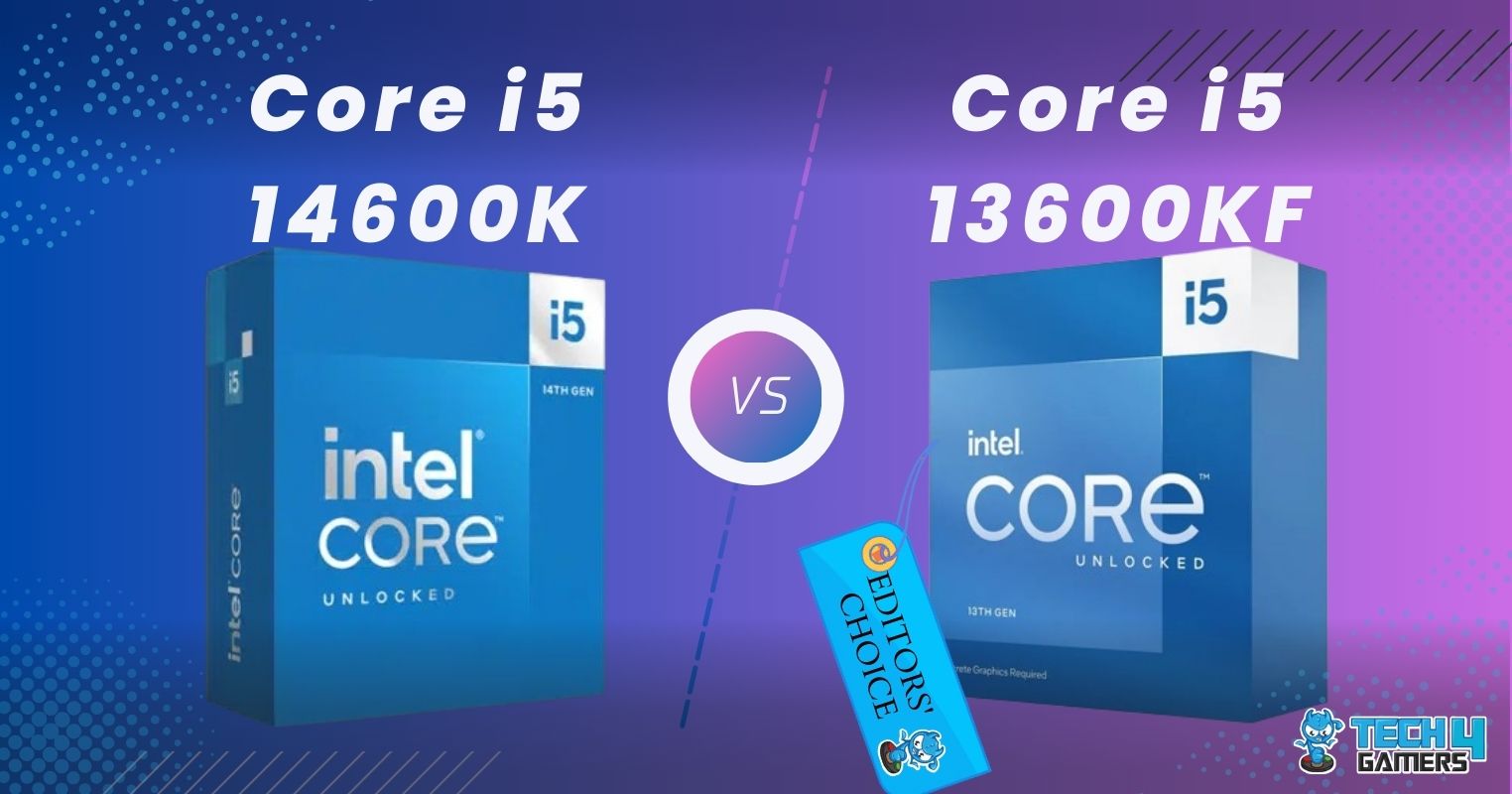
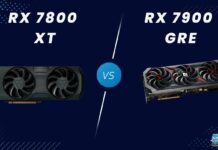
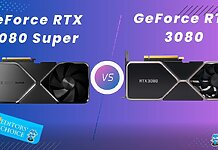
![RX 5700 XT Vs RTX 2070 Super [We Tested 8 Games]](https://tech4gamers.com/wp-content/uploads/2023/03/GPU-Comparison-Template-NEW-1-218x150.jpg)
